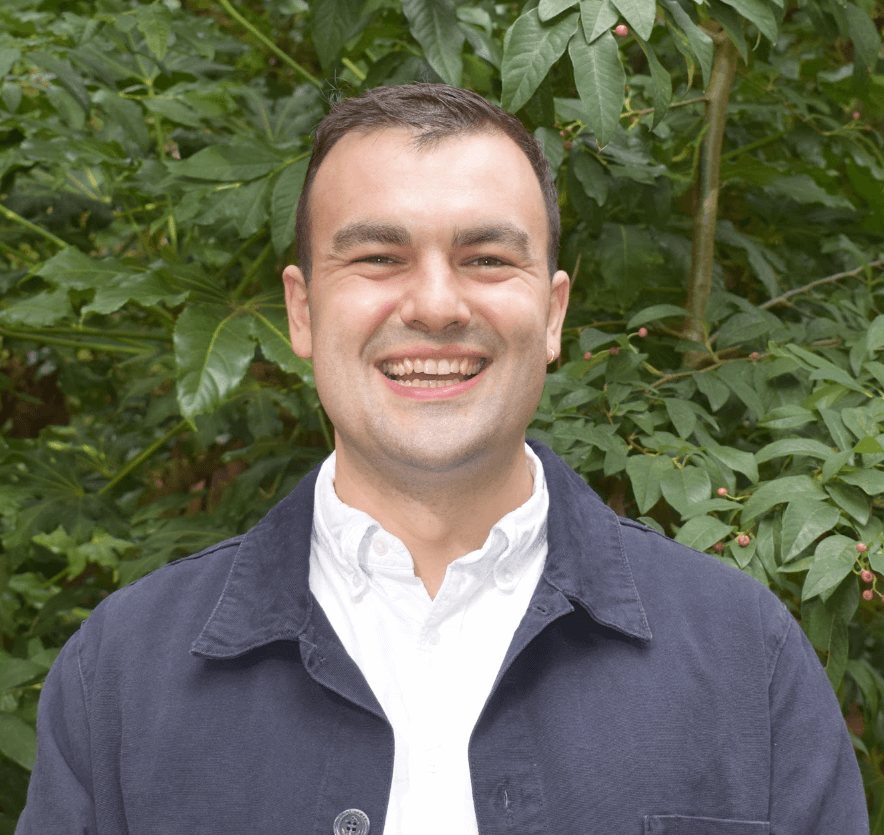
Toby Murray, Senior Research Officer, Money and Mental Health Policy Institute
Introducing: Toby Murray
29 September 2023
- Toby Murray joined Money and Mental Health as our new Senior Research Officer this week
- Toby has lots of previous experiences as a researcher, working on projects focused on the health and financial wellbeing of young people in the UK, as well as previous experience working with people experiencing homelessness
- Toby explains what he will be working on and what he’s excited about in his new role at Money and Mental Health.
Is there a more perfect storm than money and mental health? Both are areas we’re prone to sweeping under the carpet. Polling for YouGov found just 46% of UK adults would talk to their partners about their mental health, and nearly one in six wouldn’t speak to anyone at all. It also found that over half of us (52%) would rather find advice online than talk to friends or family about our money concerns.
An unwillingness to talk is worrying, as these two issues play a massive role in our lives. And, as Money and Mental Health has found time and time again, they’re intimately linked. The most concerning stat I’ve read during my first week at Money and Mental Health is that 100,000 people in problem debt attempt suicide annually.
Sadly, these challenges are only intensifying as a result of the cost of living crisis. A new study from Public Health Scotland and the University of Glasgow found that thousands of premature deaths will happen as a result of the cost of living crisis. Add to that the thousands of excess deaths following the 2008 financial crisis and we’re faced with the tragic yet unavoidable conclusion that, in the 21st century, people are paying with their lives for not having enough money to make ends meet.
Breaking this link, and ensuring we can all live happy, healthy lives regardless of our finances, is surely one of the great challenges society faces. By building on the insights from our Research Community of experts by experience, Money and Mental Health is firmly pointed at shifting our financial and health systems to be fairer, kinder and more inclusive.
My background
My career has been spent at the intersection of the money and mental health divide. My first job was at a day centre for people experiencing homelessness – the Northampton Hope Centre. A high proportion of the people we supported faced daily challenges with their mental health, often exacerbated by the insecurity baked into the systems homeless people must navigate – like long waiting lists for housing, inaccessible food banks or insufficient mental health support.
I’ve spent the last 5 years at the RSA, a think tank/social change organisation driven by building a world where everyone can participate in creating a better future. While there, I led a collaboration with the Health Foundation on Young People’s Future Health & Economic Security.
Our research found that young people are at the sharp end of the stick when it comes to collective security. Half of all 16-24 year olds are experiencing financial precarity, and a huge amount of this insecurity comes from a rolling back of our collective security infrastructure. Young people are overwhelmingly renters, overrepresented in insecure work, and least eligible for welfare and state support.
Hopes for the future
My first 3 months at Money and Mental Health will be spent researching the fourth in our series of papers on the cost of living crisis. This report will focus on the psychological harms of debt collection practices, and what can be done to reduce that harm.
The thing I’m most excited about coming to work for Money and Mental Health is taking a practical approach to solving these challenges. Working with government, regulators and firms to address where things can be better – and ensuring that we improve people’s lives across the country.
If you’re interested in tackling these challenges too, I’d love to hear from you. You can email me here, or find me on Twitter @tbymrry.
